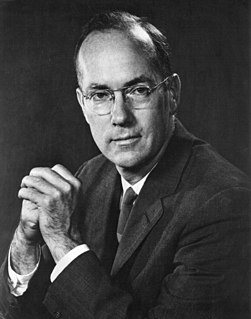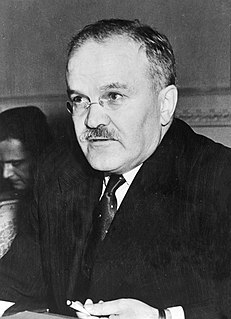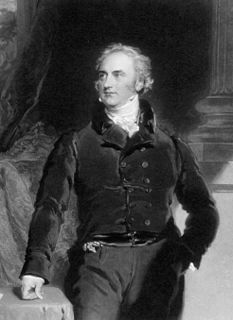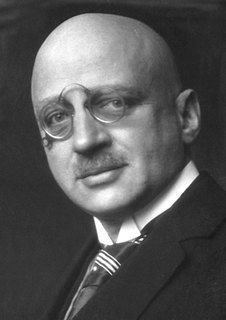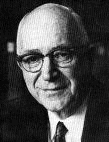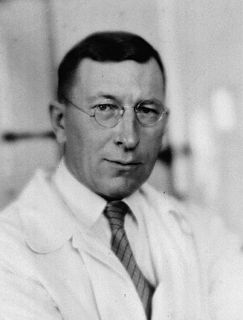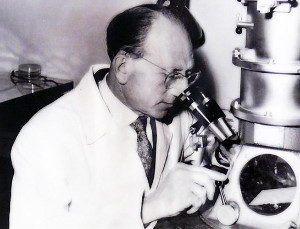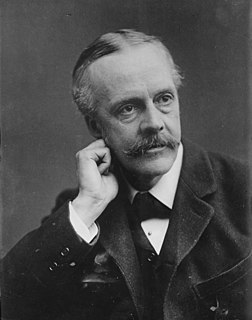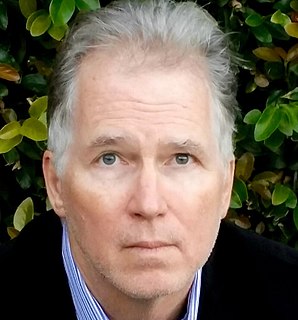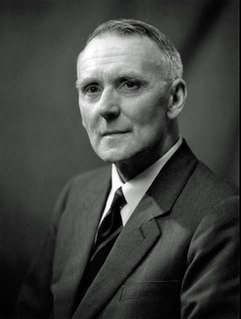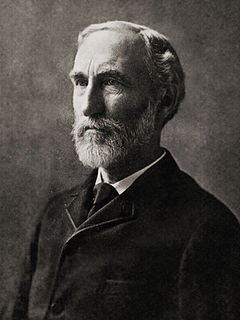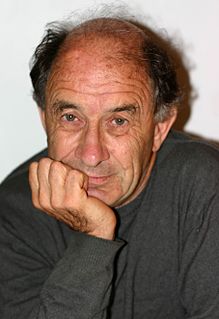Top 705 Experiments Quotes & Sayings - Page 11
Explore popular Experiments quotes.
Last updated on December 22, 2024.
Many a scientist has patiently designed experiments for the purpose of substantiating his belief that animal operations are motivated by no purposes. He has perhaps spent his spare time in writing articles to prove that human beings are as other animals so that 'purpose' is a category irrelevant for the explanation of their bodily activities, his own activities included. Scientists animated by the purpose of proving that they are purposeless constitute an interesting subject for study.
Back in the 1950s, there was a top-secret program code-named SUNTAN being conducted at a top-secret facility called Skunk Works. Its objective? To develop a liquid-hydrogen-powered spy plane. Because liquid hydrogen is incredibly volatile, early experiments were conducted inside a bomb shelter with eight-foot-thick walls.
What I like about acting is that you have to be super, super present in the moment. That's not something that comes to me naturally. But if you take the long view on anything, nothing can really affect you or knock you down. It's like, we're here for a blink, we're just the human experiment, one of many experiments going on in the universe, and it's interesting, it's beautiful by fits and starts, but I can't take it that personally. I'm just one of billions of people attempting.
[Young] was afterwards accustomed to say, that at no period of his life was he particularly fond of repeating experiments, or even of very frequently attempting to originate new ones; considering that, however necessary to the advancement of science, they demanded a great sacrifice of time, and that when the fact was once established, that time was better employed in considering the purposes to which it might be applied, or the principles which it might tend to elucidate.
Novelty may fix our attention not even on the service but on the celebrant. You know what I mean. Try as one may to exclude it, the question "What on earth is he up to now?" will intrude. It lays one's devotion waste. There is really some excuse for the man who said, "I wish they'd remember that the charge to Peter was Feed my sheep; not Try experiments on my rats, or even, Teach my performing dogs new tricks.
Science, with its experiments and logic, tries to understand the order or structure of the universe. Religion, with its theological inspiration and reflection, tries to understand the purpose or meaning of the universe. These two are cross-related. Purpose implies structure, and structure ought somehow to be interpretable in terms of purpose.
That which the sciences can add to the privileges of the human race has never been more marked than at the present moment. ... The air seems to become as accessible to him as the waters.... The name of Montgolfier, the names of those hardy navigators of the new element, will live through time; but who among us, on seeing these superb experiments, has not felt his soul elevated, his ideas expanded, his mind enlarged?
One of the ways of stopping science would be only to do experiments in the region where you know the law. But experimenters search most diligently, and with the greatest effort, in exactly those places where it seems most likely that we can prove our theories wrong. In other words, we are trying to prove ourselves wrong as quickly as possible, because only in that way can we find progress.
Who can think that this eviction of Germans was undertaken only as a temporary experiment? Those who adopted the decision on the eviction of the Germans from these territories, and who understood that Poles from other Polish districts would at once move into these territories, cannot suggest after a while to carry out reverse measures. The very idea of involving millions of people in such experiments is unbelievable, quite apart from the cruelty of it, both towards the Poles and the Germans themselves.
We are talking about mutated women, the result of cruel genetic experiments performed by fashion designers so lacking in any sense of human decency that they think nothing of putting their initials on your eyeglass lenses. The leading cause of death among fashion models is falling through street grates. If a normal woman puts on clothing designed for these unfortunate people, she is quite naturally going to look like Revenge of the Pork Person.
Nothing is known in our profession by guess; and I do not believe, that from the first dawn of medical science to the present moment, a single correct idea has ever emanated from conjecture: it is right therefore, that those who are studying their profession should be aware that there is no short road to knowledge; and that observation on the diseased living, examination of the dead, and experiments upon living animals, are the only sources of true knowledge; and that inductions from these are the sole bases of legitimate theory.
The field of scientific abstraction encompasses independent kingdoms of ideas and of experiments and within these, rulers whose fame outlasts the centuries. But they are not the only kings in science. He also is a king who guides the spirit of his contemporaries by knowledge and creative work, by teaching and research in the field of applied science, and who conquers for science provinces which have only been raided by craftsmen.
Fall forward. Here's what I mean: Reggie Jackson struck out 2,600 times in his career - the most in the history of baseball. But you don't hear about the strikeouts. People remember the home runs. Fall forward. Thomas Edison conducted 1,000 failed experiments. Did you know that? I didn't either - because number 1,001 was the light bulb. Fall forward. Every failed experiment is one step closer to success.
The dog [in Pavlov's experiments] does not continue to salivate whenever it hears a bell unless sometimes at least an edible offering accompanies the bell. But there are innumerable instances in human life where a single association, never reinforced, results in the establishment of a life-long dynamic system. An experience associated only once with a bereavement, an accident, or a battle, may become the center of a permanent phobia or complex, not in the least dependent on a recurrence of the original shock.
Part of what it is to be scientifically-literate is how you think about information that's presented in front of you. I think that's the great challenge. You have people who believe they do know how to think about the information, but don't, and they're in the position of power and legislation. You can't base a society on non-objectively verifiable truth. Otherwise, it's a fantasy land and science is the pathway to those emerging truths that are hard-earned and that some have taken decades, if not centuries, to emerge from experiments all around the world.
Best said possibly the only thing that would have changed my attitude: 'What will happen to me?' 'Your friend MacLeod will look after you,' I said. Best replied, 'If you get out, I get out.' There was silence for some moments. I thought of all the joy of the early experiments which we had known together. Here was loyalty.
We tried some experiments in mind reading which were not very successful. Think mind reading contrary to common sense, wise provision of the Bon Dieu that we cannot read each others minds, twould stop civilization and everybody would take to the woods. In fifty or hundred thousand centuries when mankind have become perfect by evolution then perhaps this sense could be developed with safety to the state.
I've always been inspired by Dr. Martin Luther King, who articulated his Dream of an America where people are judged not by skin color but "by the content of their character." In the scientific world, people are judged by the content of their ideas. Advances are made with new insights, but the final arbitrator of any point of view are experiments that seek the unbiased truth, not information cherry picked to support a particular point of view.
Egypt is the mind of the Earth. The heart actually is in Mexico, and some say in Columbia. Tahiti/Morea sits in the feminine South Pole of the Christ grid and that is why they did the nuclear experiments there. The area inside the tube torus that moves up through there enters into the very center of the beam of the Earth. That's why I called it the womb - it goes right into the private personal aspect of the Earth. And they exploded the bombs, right down this center.
It yet remains a problem to be solved in human affairs, whether any free government can be permanent, where the public worship of God, and the support of religion, constitute no part of the policy or duty of the state in any assignable shape. The future experience of Christendom, and chiefly of the American states, must settle this problem, as yet new in the history of the world, abundant, as it has been, in experiments in the theory of government.
The more experiences and experiments accumulate in the exploration of nature, the more precarious the theories become. But it is not always good to discard them immediately on this account. For every hypothesis which once was sound was useful for thinking of previous phenomena in the proper interrelations and for keeping them in context. We ought to set down contradictory experiences separately, until enough have accumulated to make building a new structure worthwhile.
Any chemist reading this book can see, in some detail, how I have spent most of my mature life. They can become familiar with the quality of my mind and imagination. They can make judgements about my research abilities. They can tell how well I have documented my claims of experimental results. Any scientist can redo my experiments to see if they still work-and this has happened! I know of no other field in which contributions to world culture are so clearly on exhibit, so cumulative, and so subject to verification.
The physicist may be satisfied when he has the mathematical scheme and knows how to use for the interpretation of the experiments. But he has to speak about his results also to non-physicists who will not be satisfied unless some explanation is given in plain language. Even for the physicist the description in plain language will be the criterion of the degree of understanding that has been reached.
The first thing to realize about physics ... is its extraordinary indirectness.... For physics is not about the real world, it is about "abstractions" from the real world, and this is what makes it so scientific.... Theoretical physics runs merrily along with these unreal abstractions, but its conclusions are checked, at every possible point, by experiments.
The physicist, in his study of natural phenomena, has two methods of making progress: (1) the method of experiment and observation, and (2) the method of mathematical reasoning. The former is just the collection of selected data; the latter enables one to infer results about experiments that have not been performed. There is no logical reason why the second method should be possible at all, but one has found in practice that it does work and meets with reasonable success.
Biochemists and biologists who adhere blindly to the Darwinism theory search for results that will be in agreement with their theories and consequently orient their research in a given direction, whether it be in the field of ecology, ethology, sociology, demography (dynamics of populations), genetics (so-called evolutionary genetics), or paleontology. This intrusion of theories has unfortunate results: it deprives observations and experiments of their objectivity, makes them biased, and, moreover, creates false problems.
In alchemical treatises, the formula L'Oeuvre au Noir ... designates what is said to be the most difficult phase of the alchemist's process, the separation and dissolution of substance. It is still not clear whether the term applied to daring experiments on matter itself, or whether it was understood to symbolize trials of the mind in discarding all forms of routine and prejudice. Doubtless it signified one or the other meaning alternately, or perhaps both at the same time.
My days I devote to reading and experiments in chemistry, and I spend many of the clear nights in the study of astronomy. There is, though I do not know how there is or why there is, a sense of infinite peace and protection in the glittering hosts of heaven. There it must be, I think, in the vast and eternal laws of matter, and not in the daily cares and sins and troubles of men, that whatever is more than animal within us must find its solace and its hope.
The man who invented Eskimo Pie made a million dollars, so one is told, but E.E. Cummings, whose verse has been appearing off andon for three years now, and whose experiments should not be more appalling to those interested in poetry than the experiment of surrounding ice-cream with a layer of chocolate was to those interested in soda fountains, has hardly made a dent in the doughy minds of our so-called poetry lovers.
The experimentalists think that we can only get at our concepts by way of empirical investigation, while the armchair philosophers think that we can skip the experiments and figure things out from our armchairs. What they have in common, however, is regarding our concepts as the targets of philosophical theorising, and I just don't think that, in the vast majority of cases, the subject matter of philosophy has our concepts as its target.
The true thrift is always to spend on the higher plane; to invest and invest, with keener avarice, that he may spend in spiritualcreation, and not in augmenting animal existence. Nor is the man enriched, in repeating the old experiments of animal sensation; nor unless through new powers and ascending pleasures he knows himself by the actual experience of higher good to be already on the way to the highest.
In India there was a sense of time that does not tick with modern clocks, just as there is a knowledge that is not gained through science and empirical experiments. In the modern West knowledge is of objective, finite particulars in historical time. India recognizes that kind of useful information: it calls it "lower knowledge." Higher knowledge (paravidya) proceeds differently, or rather it doesn't proceed at all but enters history full-blown on the morning of a new creation.
I speak without exaggeration when I say that I have constructed 3,000 different theories in connection with the electric light, each one of them reasonable and apparently likely to be true. Yet only in two cases did my experiments prove the truth of my theory. My chief difficulty was in constructing the carbon filament... Every quarter of the globe was ransacked by my agents, and all sorts of the queerest materials used, until finally the shred of bamboo, now utilized by us, was settled upon.
Though the parallel is not complete, it is safe to say that science will never touch them unaided by its practical applications. Its wonders may be catalogued for purposes of education, they may be illustrated by arresting experiments, by numbers and magnitudes which startle or fatigue the imagination but they will form no familiar portion of the intellectual furniture of ordinary men unless they be connected, however remotely, with the conduct of ordinary life.
If you look across a host of measures at adoption studies, fraternal v. identical twin studies, twins-raised-apart studies, the history of early childhood intervention research, naturally-occurring experiments, differences between societies, changes over history, and so forth, you tend to come up with nature and nurture as being about equally important: maybe fifty-fifty. The glass is roughly half-full and half-empty.
A reporter called on Edison to interview him about a substitute for lead in the manufacture of storage batteries that the scientist was seeking. Edison informed the man that he had made 20,000 experiments but none had worked. "Aren't you discouraged by all this waste of effort?" the reporter asked. Edison: "Waste! There's nothing wasted. I have discovered 20,000 things that won't work."
There was, I think, a feeling that the best science was that done in the simplest way. In experimental work, as in mathematics, there was "style" and a result obtained with simple equipment was more elegant than one obtained with complicated apparatus, just as a mathematical proof derived neatly was better than one involving laborious calculations. Rutherford's first disintegration experiment, and Chadwick's discovery of the neutron had a "style" that is different from that of experiments made with giant accelerators.
I reached this level by sheer dint of hard work, toiling away at scores of tricks and experiments. I used to play with the ball from dawn till dusk and just kept practising. If I wasn't playing matches, it was trying out one on one or two against two with a tennis ball. Then I used to try aiming at certain targets. That's the only way to learn. And if I missed the target, I kept trying until I scored
It is impossible to devise an experiment without a preconceived idea; devising an experiment, we said, is putting a question; we never conceive a question without an idea which invites an answer. I consider it, therefore, an absolute principle that experiments must always be devised in view of a preconceived idea, no matter if the idea be not very clear nor very well defined.
Evolutionary theory, properly understood, does not conflict with the idea that God occasionally intervenes in nature - for example, by once or twice causing a beneficial mutation to occur. Biologists have not detected any such interventions despite the data and theory they have assembled about mutation. However, I think it is a mistake to expect biological experiments to be able to detect such one-off acts of divine intervention, especially if those acts occurred in the distant past. Science isn't in that line of work.
At this point, we are living one of the greatest experiments in humankind - to create something that has, throughout history, been considered a contradiction in terms - a passionate marriage. Passion has always existed, but it took place somewhere else. Everything that we wanted from a traditional marriage - companionship, family, children, economic support, a best friend, a passionate lover, a trusted confidante, an intellectual equal - we are asking from one person what an entire village once provided. And couples are crumbling under the weight of so much expectation.
When one studies strongly radioactive substances special precautions must be taken if one wishes to be able to take delicate measurements. The various objects used in a chemical laboratory and those used in a chemical laboratory, and those which serve for experiments in physics, become radioactive in a short time and act upon photographic plates through black paper. Dust, the air of the room, and one's clothes all become radioactive.
Molecular evolution is not based on scientific authority. . . . There are assertions that such evolution occurred, but absolutely none are supported by pertinent experiments or calculations. Since no one knows molecular evolution by direct experience, and since there is no authority on which to base claims of knowledge, it can truly be said that . . . the assertion of Darwinian molecular evolution is merely bluster.
As an innovation... the establishment of Free Schools was the boldest ever promulgated, since the commencement of the Christian era... Time has ratified its soundness. Two centuries proclaim it to be as wise as it was courageous, as beneficient as it was disinterested. It was one of those grand mental and moral experiments... The sincerity of our gratitude must be tested by our efforts to perpetuate and improve what they established. The gratitude of the lips only is an unholy offering.
When you believe you have found an important scientific fact, and are feverishly curious to publish it, constrain yourself for days, weeks, years sometimes, fight yourself, try and ruin your own experiments, and only proclaim your discovery after having exhausted all contrary hypotheses. But when, after so many efforts you have at last arrived at a certainty, your joy is one of the greatest which can be felt by a human soul.
The laws of thermodynamics, as empirically determined, express the approximate and probable behavior of systems of a great number of particles, or, more precisely, they express the laws of mechanics for such systems as they appear to beings who have not the fineness of perception to enable them to appreciate quantities of the order of magnitude of those which relate to single particles, and who cannot repeat their experiments often enough to obtain any but the most probable results.
I've had only one idea in my life - a true idee fixe. To put it as bluntly as possible - the idea of having my own way. 'Control!' expresses it. The control of human behavior. In my early experimental days it was a frenzied, selfish desire to dominate. I remember the rage I used to feel when a prediction went awry. I could have shouted at the subjects of my experiments, 'Behave, damn you! Behave as you ought!
Like every other destruction of optimism, whether in a whole civilisation or in a single individual, these must have been unspeakable catastrophes for those who had dared to expect progress. But we should feel more than sympathy for those people. We should take it personally. For if any of those earlier experiments in optimism had succeeded, our species would be exploring the stars by now, and you and I would be immortal.
I've always felt that the writing I responded to most - the novels and stories that compelled me, that felt like they described the world I live in, with all of its subjectivity, irrationality, and paradox, were those which made free use of myths and symbols, fantastic occurences, florid metaphors, linguistic experiments, etcetera - to depict the experiences of relatively 'realistic' characters - on the level of their emotions and psychology, rather than in terms of what kinds of lives they led or what kind of events they experience.
Particular honour belongs to those who believed in the possibility of mechanical flight when all the world was against them; not the visionaries because they hoped for it merely, but those who by sheer force of intellect perceived the means by which it could be accomplished and directed their experiments along the right path. ... The name of Lilienthal is now among the most honoured, but curiously his own countrymen were the last to recognize the value of his work.
That is, you can have nothingness, absolute nothingness for maybe a tiny fraction of a second, if a second can be defined in that arena, but then it falls apart into a something and an anti-something. And that something is then what we call the universe. But can we really understand that or put rigorous mathematics or testable experiments against that? Not yet. So one of the big holy grail of physics is to understand why there is something rather than nothing.
For all the feminist jabber about women being victimized by fashion, it is men who most suffer from conventions of dress. Every day, a woman can choose from an army of personae, femme to butch, and can cut or curl her hair or adorn herself with a staggering variety of artistic aids. But despite the Sixties experiments in peacock dress, no man can rise in the corporate world today, outside the entertainment industry, with long hair or makeup or purple velvet suits.
I should esteem it the extreme of imprudence to prolong the precarious state of our national affairs, and to expose the Union to the jeopardy of successive experiments, in the chimerical pursuit of a perfect plan. I never expect to see a perfect work from imperfect man. The result of the deliberations of all collective bodies must necessarily be a compound, as well of the errors and prejudices, as of the good sense and wisdom, of the individuals of whom they are composed.
Animals see a video of the world. If an animal were only to see still images, how would its vision develop? Neuroscientists have run experiments in cats in a dark environment with a strobe so it can only see still images - and those cats' visual systems actually underdevelop. So motion is important, but what is the algorithm?
The scientists from Franklin to Morse were clear thinkers and did not produce erroneous theories. The scientists of today think deeply instead of clearly. One must be sane to think clearly, but one can think deeply and be quite insane. Today's scientists have substituted mathematics for experiments, and they wander off through equation after equation, and eventually build a structure which has no relation to reality.
Various random experiments, cut-ups, fold-ins, juxtapositions, timed writings of other kinds, the "objects assignment" which involves dream, adventure, ancestry. Writing outside, writing on moving vehicles. Looking at paintings in the grand museums of the world in a proscribed way.Little strategies to keep the lalita - play or dance - going. Sometimes it's lonely you know, just you and your own imagination.
Laplace considers astronomy a science of observation, because we can only observe the movements of the planets; we cannot reach them, indeed, to alter their course and to experiment with them. "On earth," said Laplace, "we make phenomena vary by experiments; in the sky, we carefully define all the phenomena presented to us by celestial motion." Certain physicians call medicine a science of observations, because they wrongly think that experimentation is inapplicable to it.





